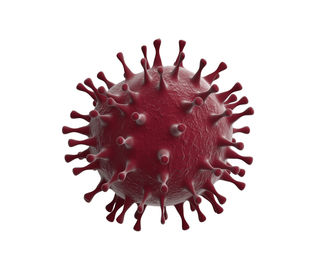Anxiety
Caring Instead of Panic Can Maintain Safety and Sanity
Love in the time of COVID-19.
Posted March 15, 2020

The news clips can be disheartening: more and more infections and deaths from COVID-19 across the U.S. and around the world. The views of the ugliness of panic can be equally disturbing, such as the video of crowds running wild and battling each other to stockpile toilet paper, cleansers, and water as a store manager pleads, "Please, we're all human beings. Let's be civil to each other." And no one listens.
Fear and uncertainty can bring out the worst in people. But such challenges can also bring out the best. Yes, we're afraid and concerned with protecting ourselves and those we love from this new worldwide health crisis. But we're all in this together—and can soothe ourselves and those around us by trying to be our best selves during these times. What are some things we need to remember?
The health and safety of everyone matters. It isn't just about you and yours. We keep ourselves safe by following sensible health guidelines and also by looking out for each other. Don't hoard items others need as well. Or worse.
There are some quoted in the media who celebrate the virus's penchant for killing the aged, seeing this as overdue karma for troublesome Boomers. And there are still some pundits insisting that this is all a hoax, some even urging viewers to go to restaurants and get on planes to help boost the economy. Those in denial mode can endanger the rest of us. The more people who are well-informed and who have access to means of safeguarding their health, the better off we all are.
One can find meaning in helping others during this difficult time when so much seems beyond our control. We do have control over our own behavior. These uncertain times can offer unique opportunities. Instead of letting panic overshadow your goodness and decency, bring your best self to this challenge. Instead of political and generational divisiveness, let the knowledge that we're all in this together begin to heal the rifts.
Offer to pick up groceries for an elderly or disabled neighbor. Check up on a friend or neighbor who is alone. Ask how you can be of help. Offering to help or emotionally support another may decrease your own anxiety as well as keeping others safe.
Be sensitive to the special concerns of others. Some find reassurance in times of crisis by keeping life as normal as possible. Others, particularly those at high risk of serious, even fatal, consequences if infected, feel the need to make major changes in their lives.
Even if you feel the current crisis has been over-hyped by the media or that the number of cases in your area doesn't merit alarm, don't scoff if a family member, friend, or neighbor, who may be more vulnerable to the disease, declines to go out for dinner or to a movie. Be willing to compromise: Order dinner to go or to be delivered, or check out movies available for streaming at home. Don't shame another for caution.
See this as a chance to reach across previous divides. Show concern and caring for everyone, including those in your life with whom you vehemently disagree on politics, religion, and general worldview. As this global health crisis unfolds, our differences that seemed so important only days ago are overshadowed by our shared challenges. Being on the right or the left, being old or young or middle-aged, being black, white, or brown, being religious or an agnostic or atheist—all of this matters so much less right now. COVID-19 doesn't discriminate. We're all in this together.
Decrease the loneliness of social distancing by reaching out to express your love and connection to others. Communicate in old ways and new: via snail mail, text, email, Facetime or Skype, or social media. Keep each other informed of the latest developments. Find positive distractions and share them.
And speak from your heart. You might find yourself saying things that you have never said out loud or in writing. This is the time to share those unexpressed feelings. When people are afraid, feeling alone and uncertain of the future, knowing that they are loved and cherished means more than ever before.


